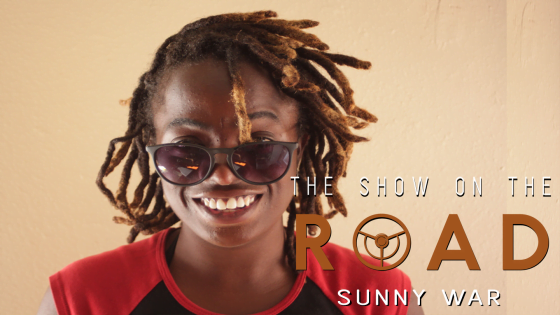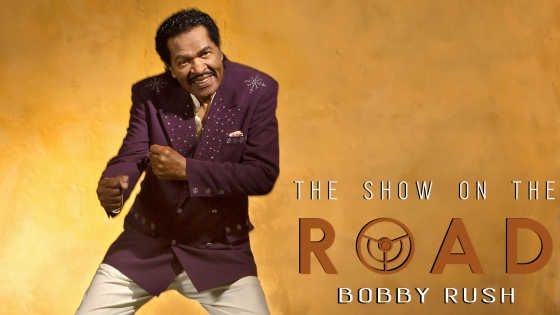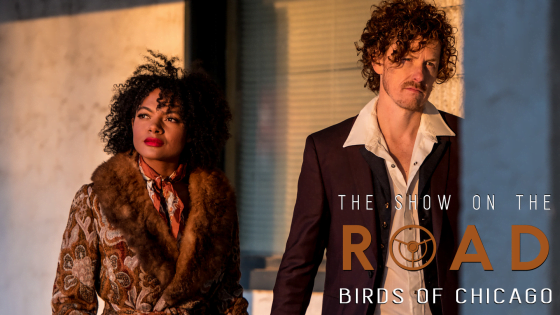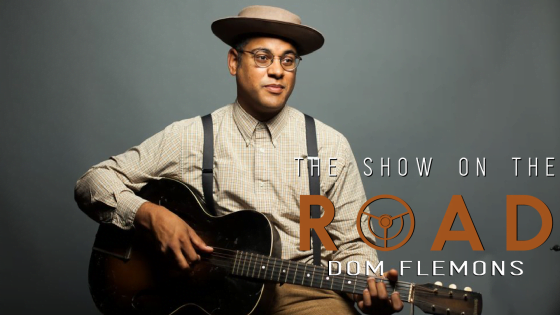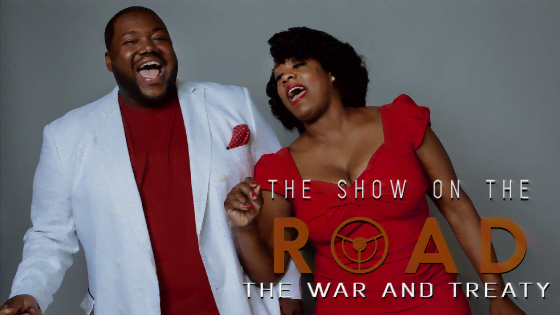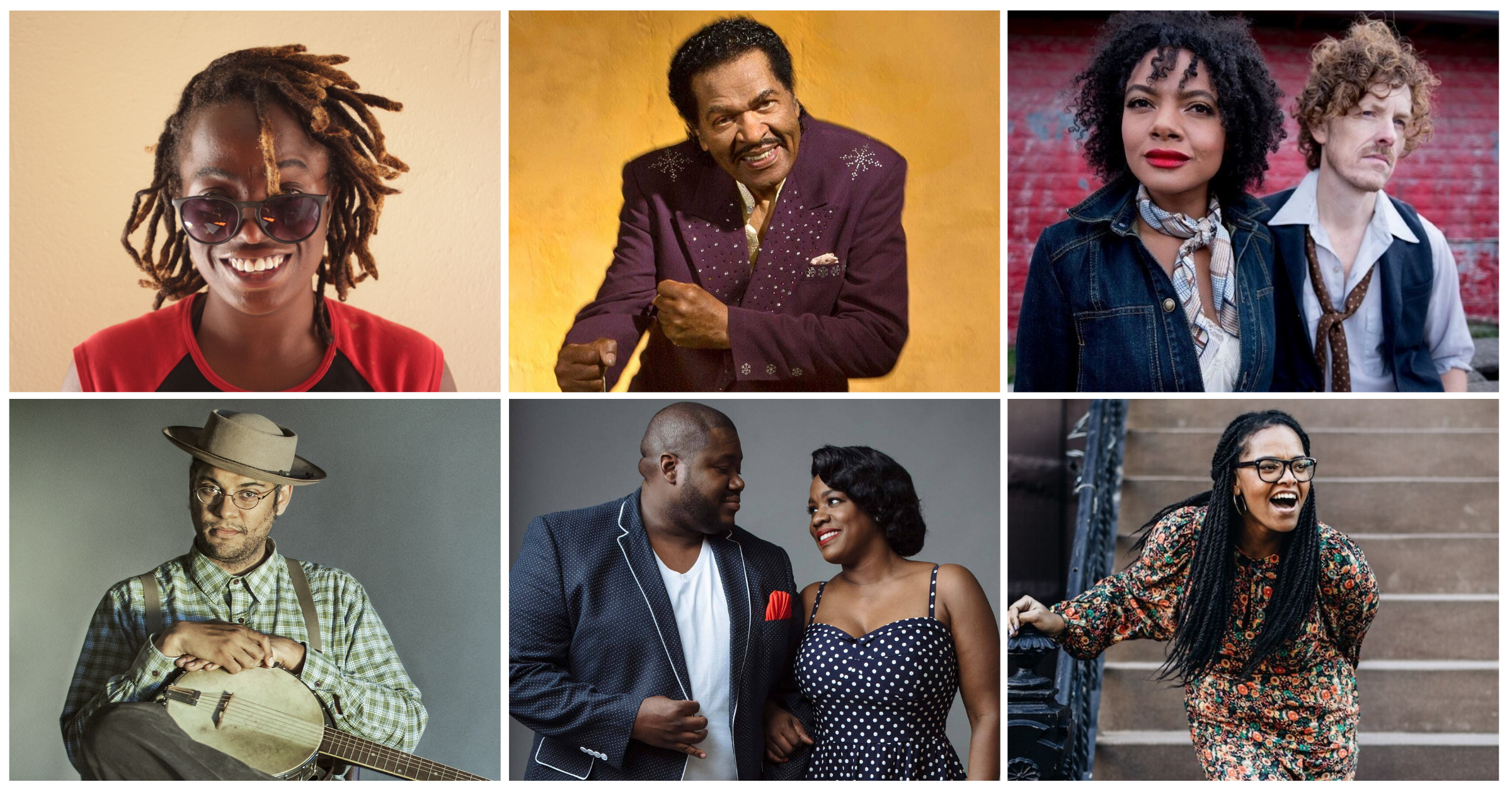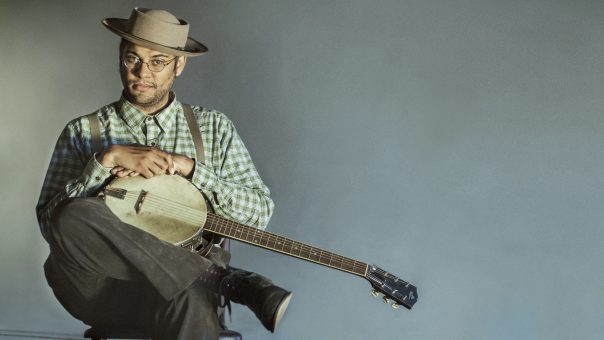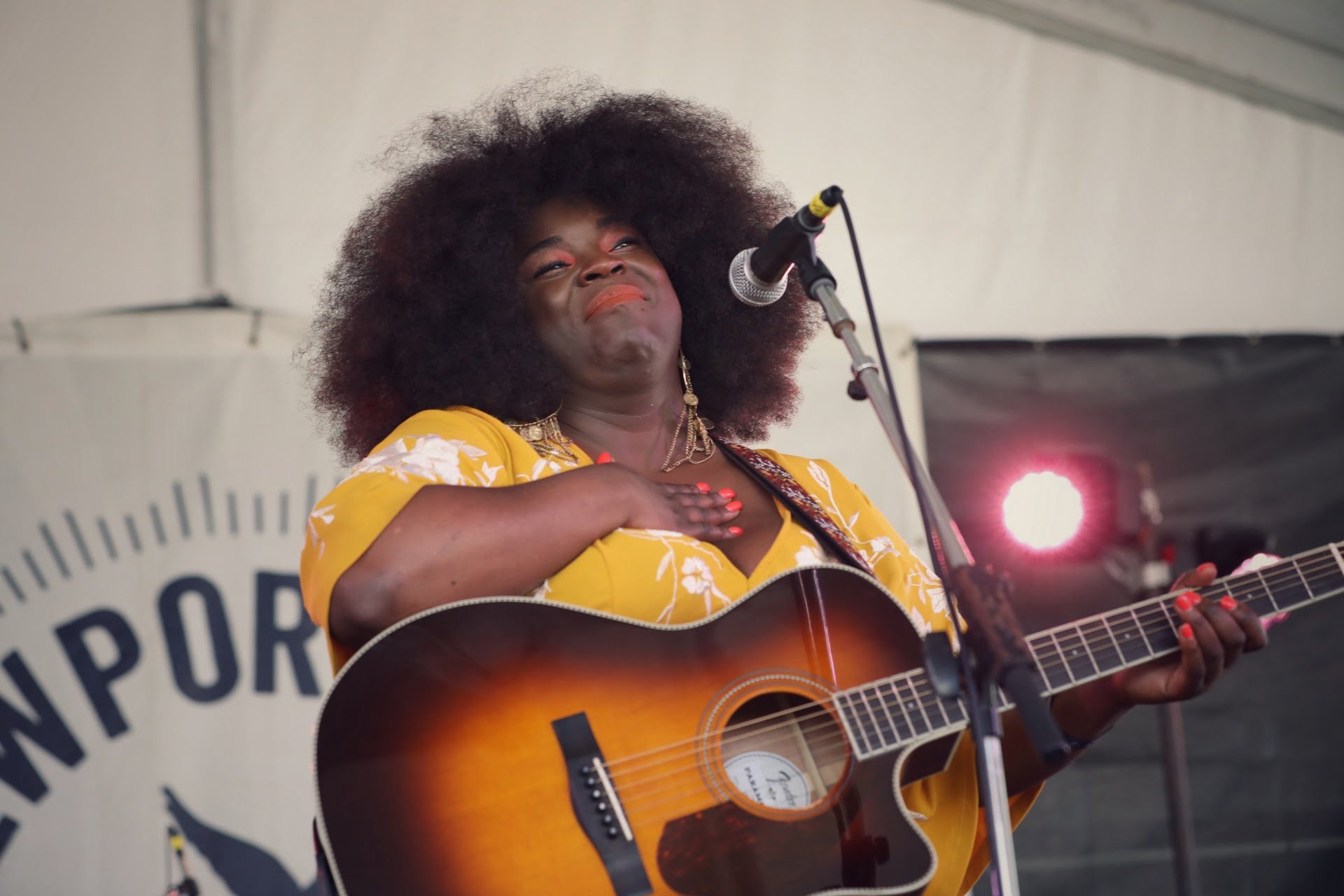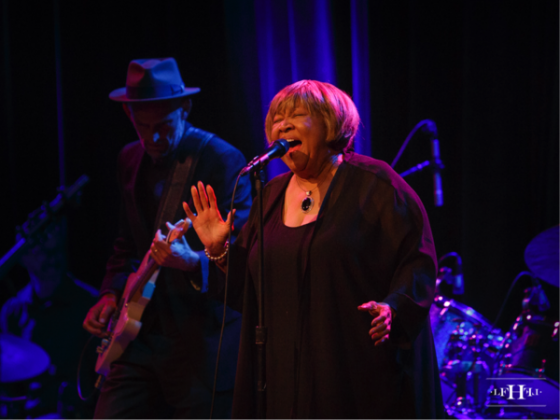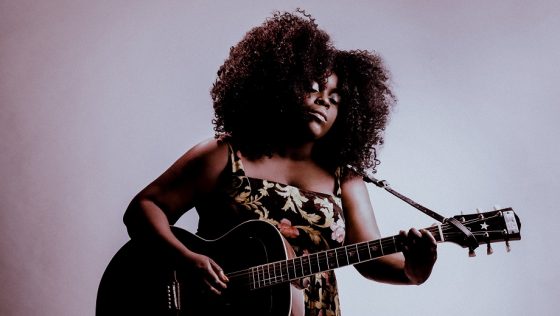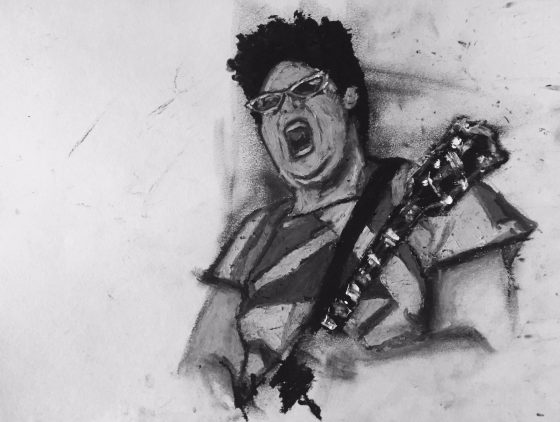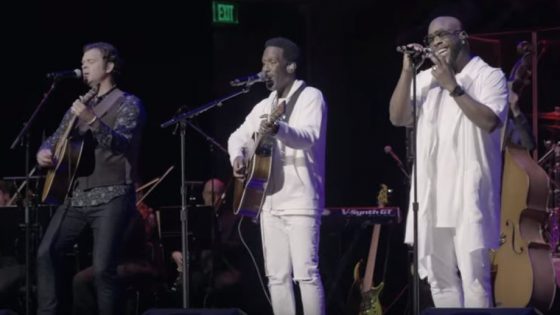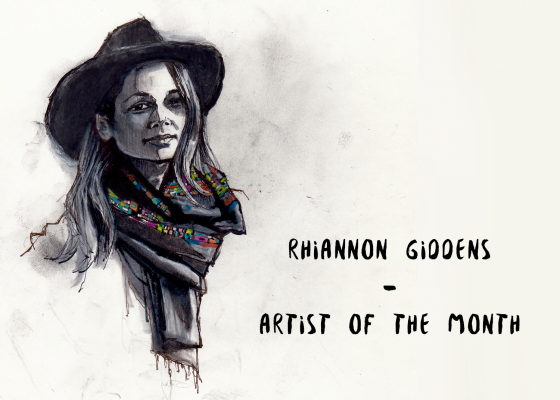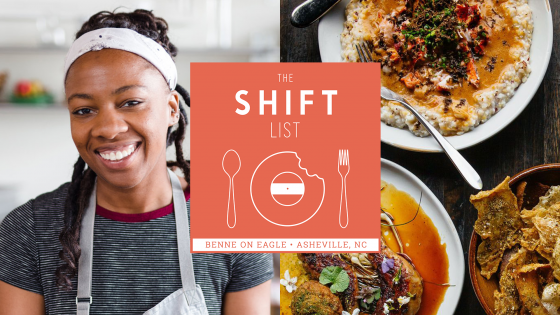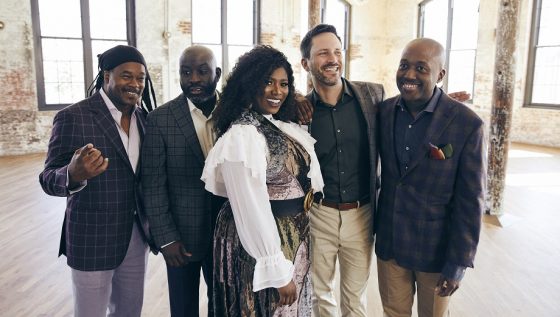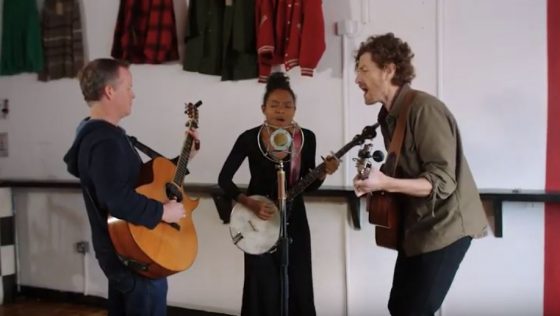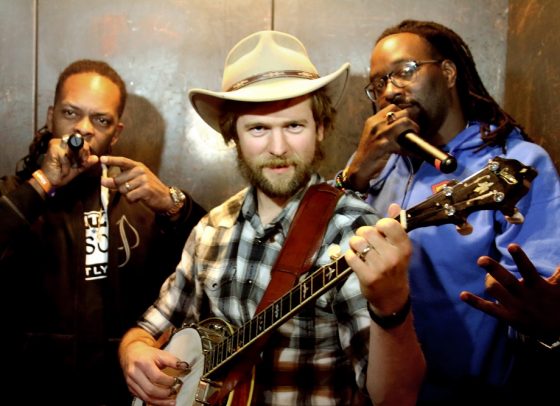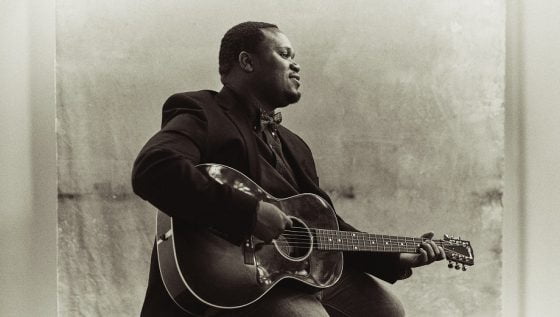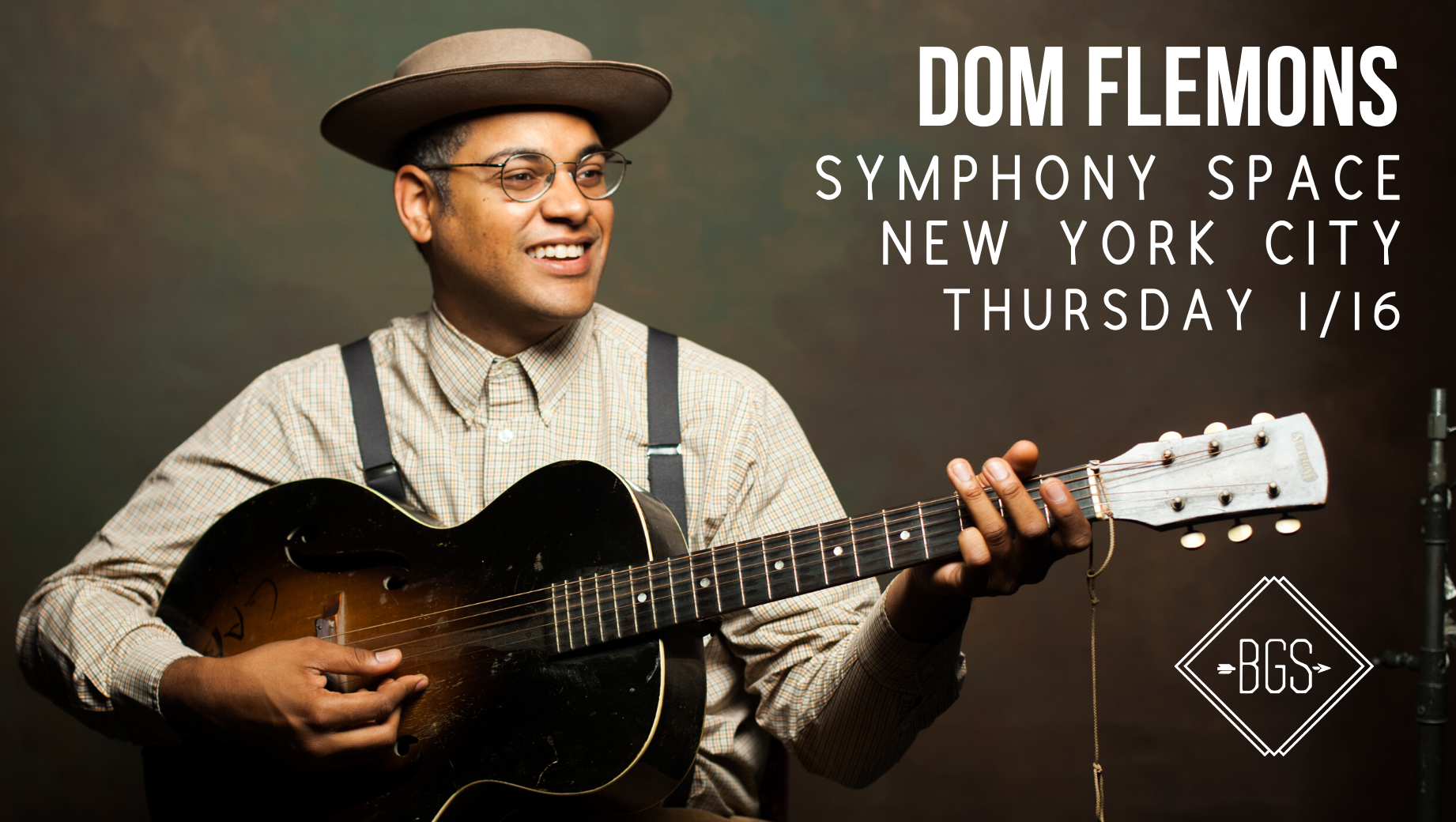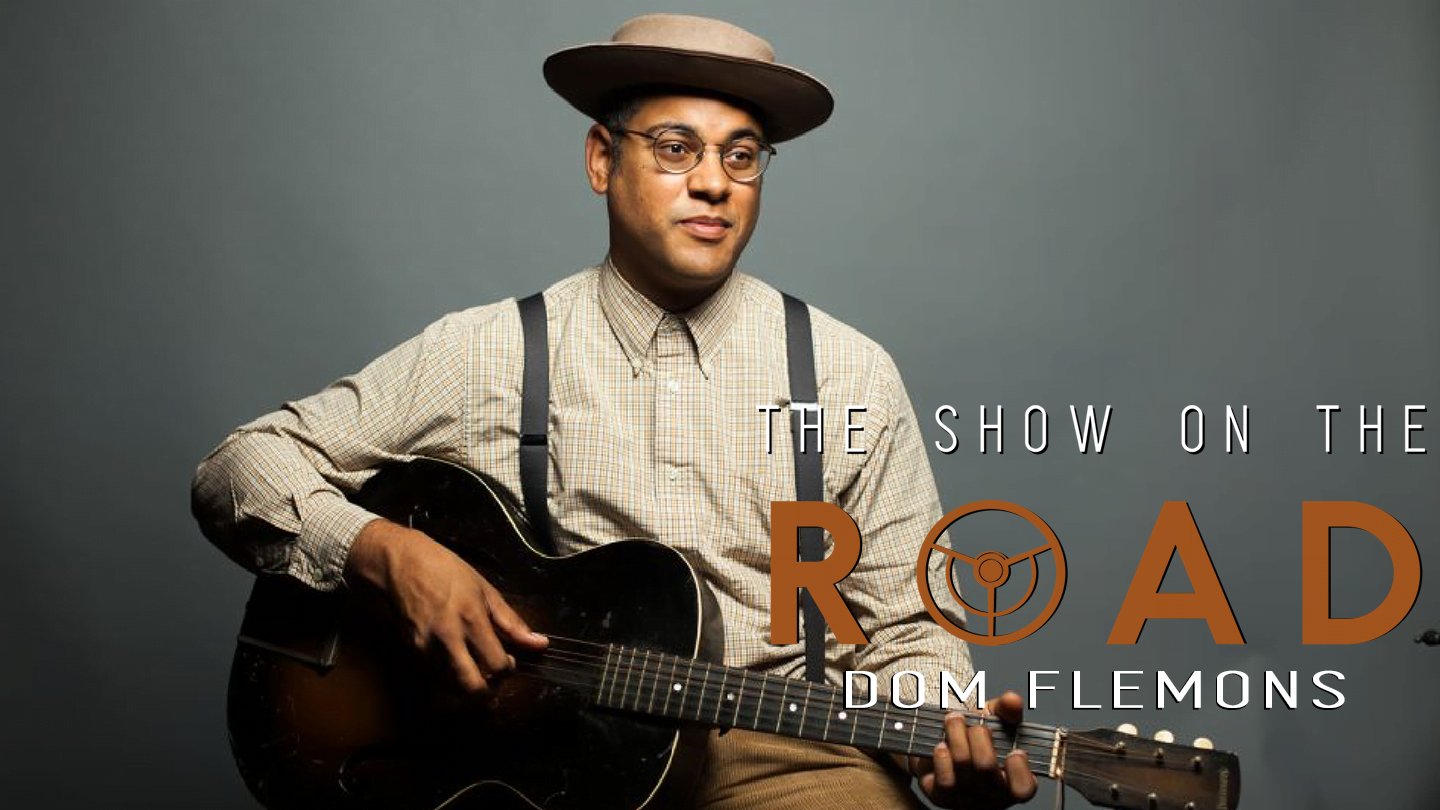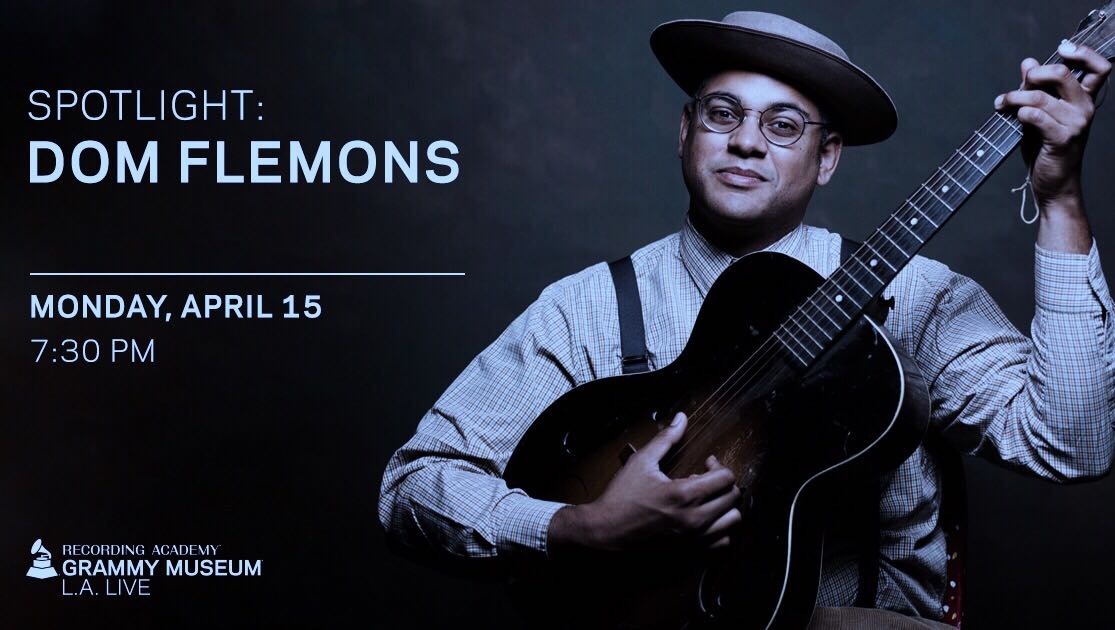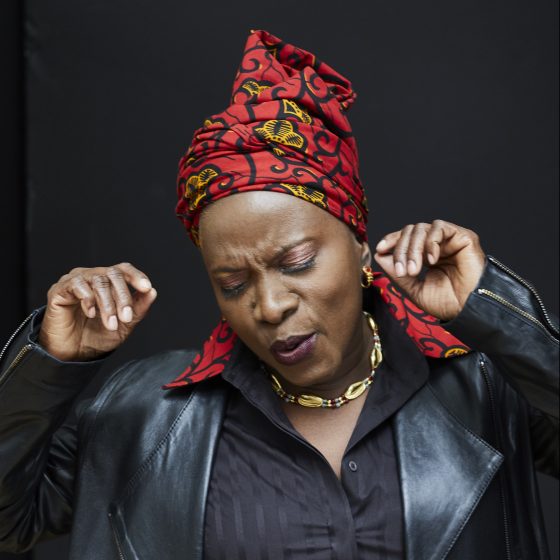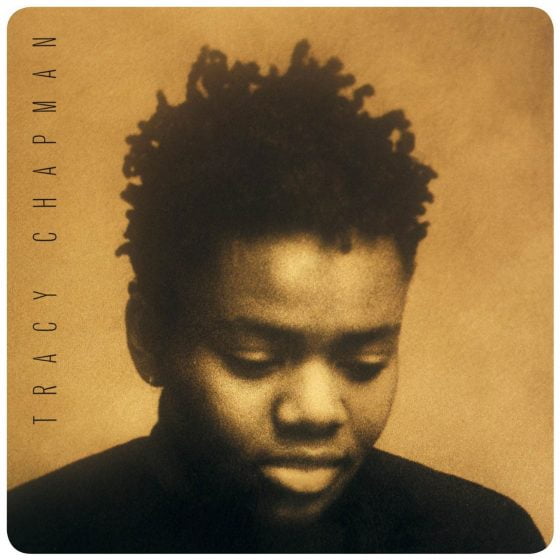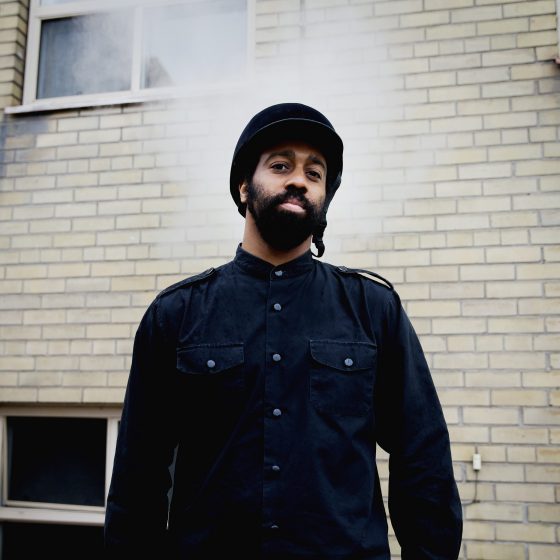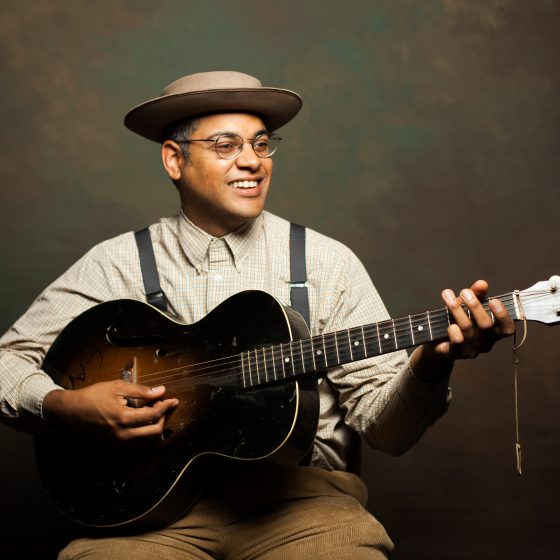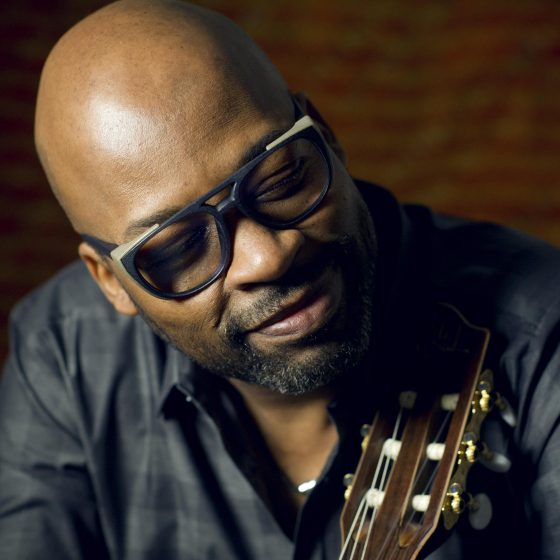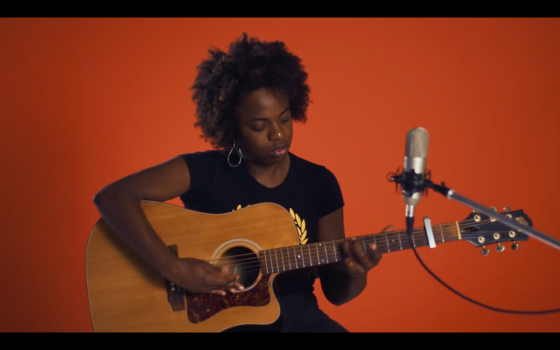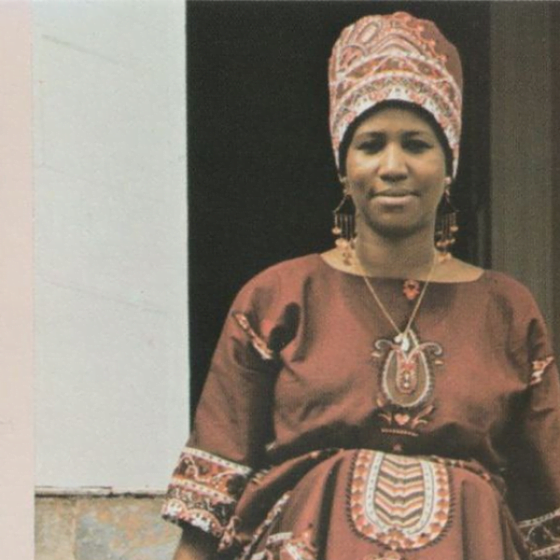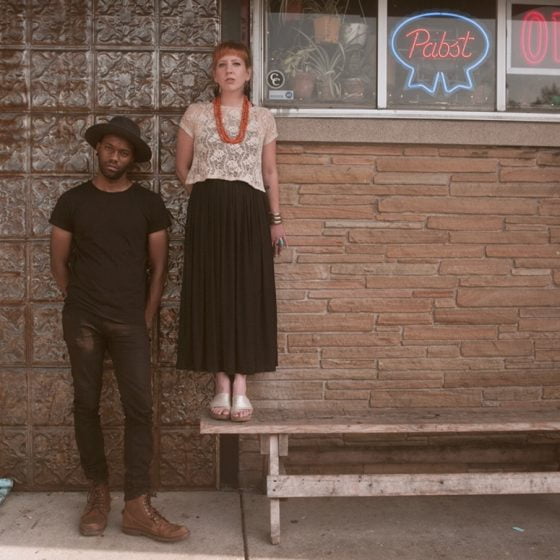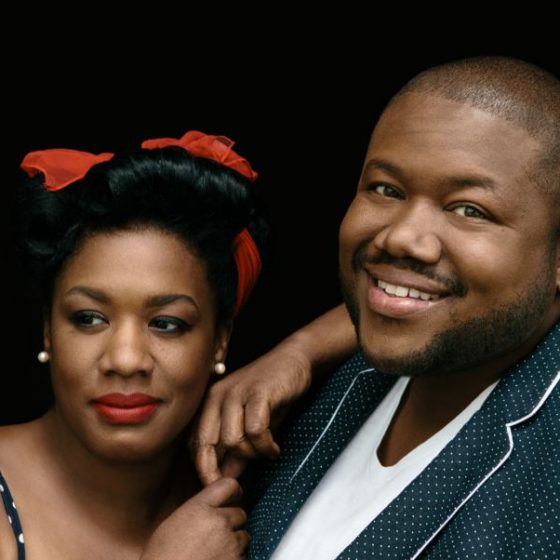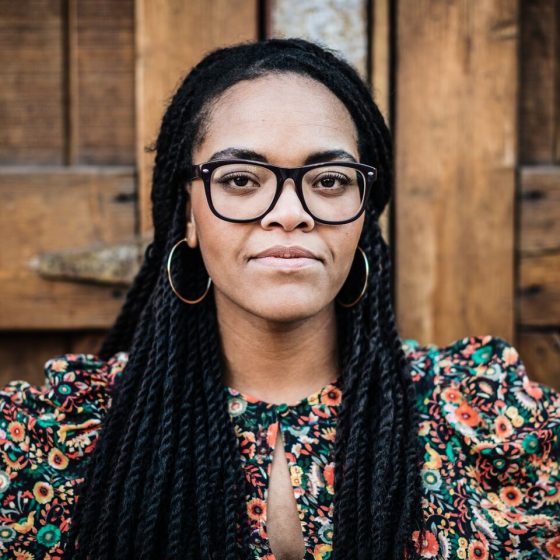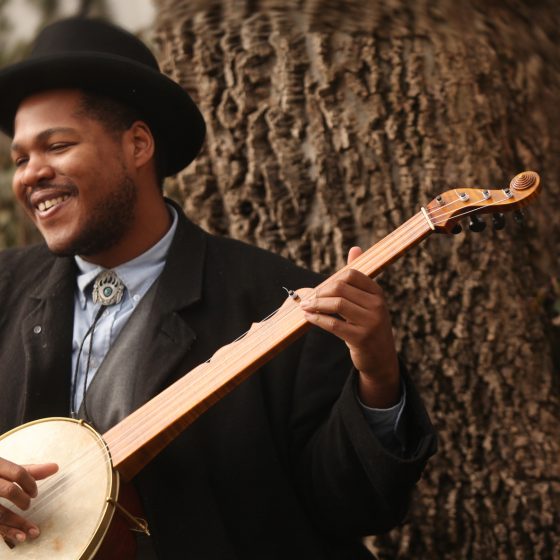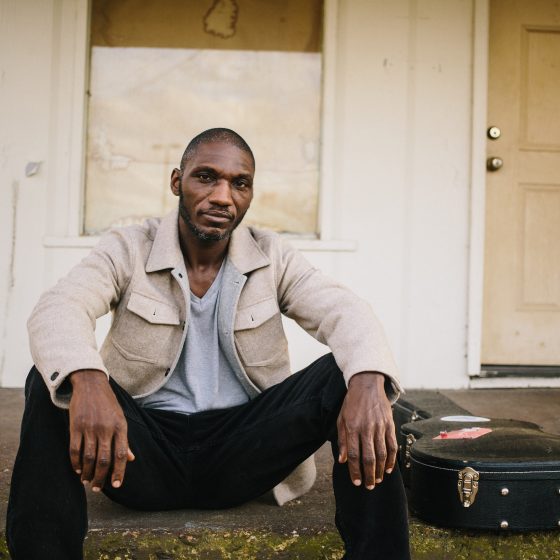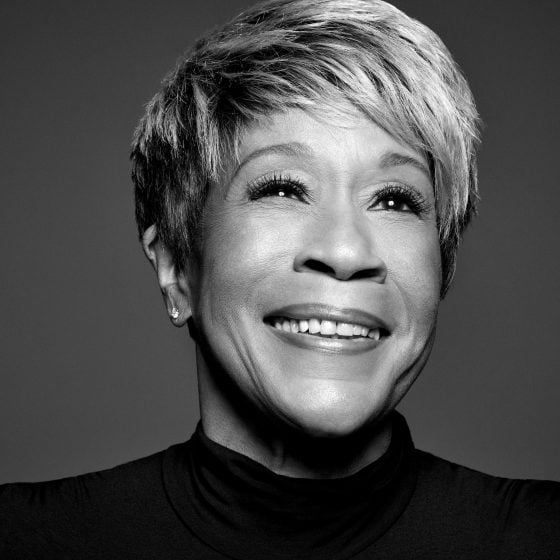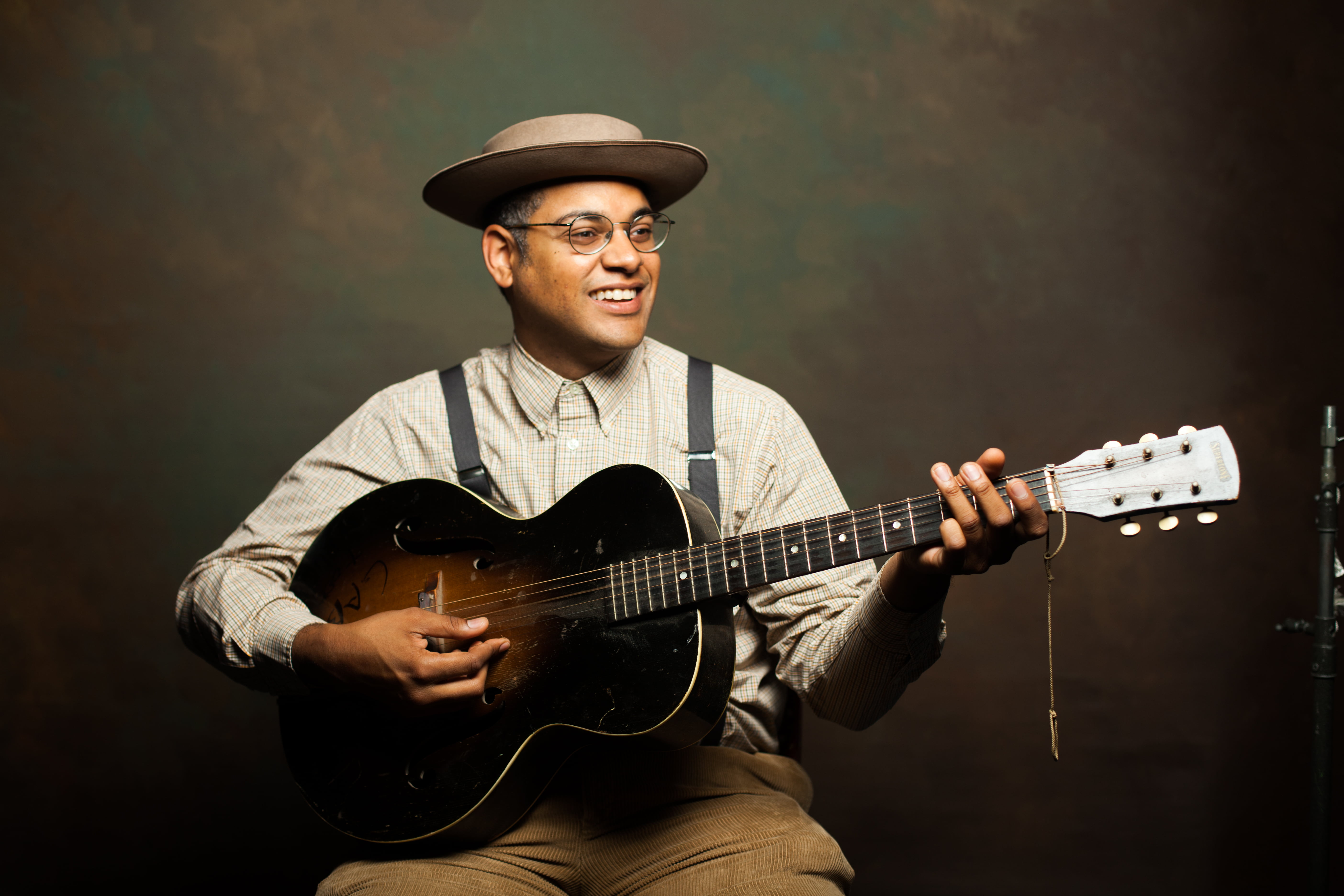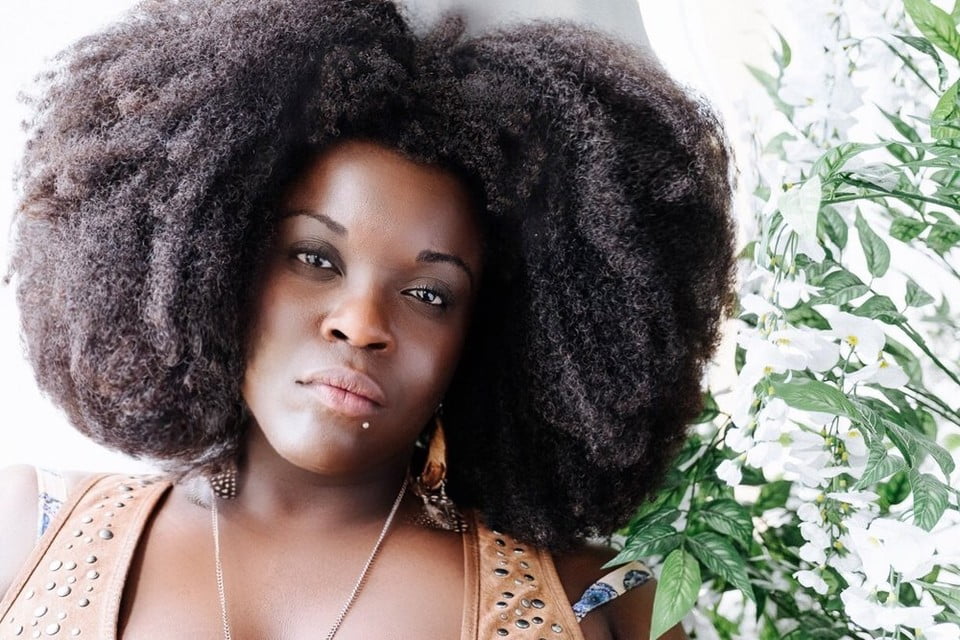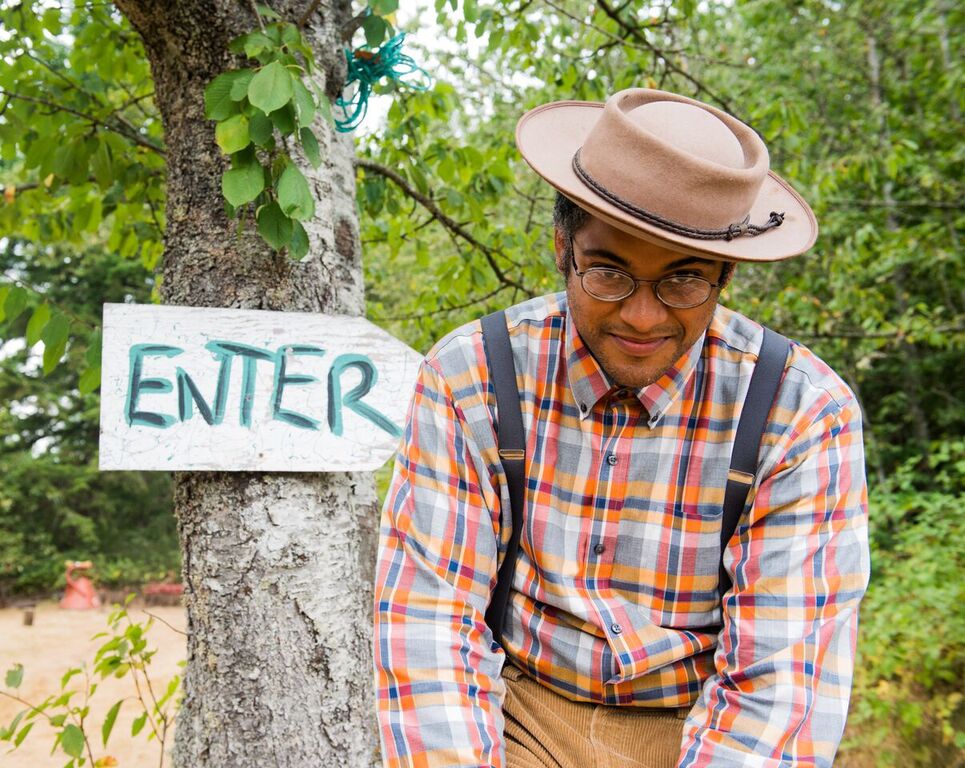It’s fitting that Black Cowboys, the latest record from writer, storyteller, historian, and songster Dom Flemons, was released on Smithsonian Folkways, the non-profit label arm of the eponymous museum and its Center for Folklife — the album plays and reads like a museum exhibit in musical form. This collection of songs, from traditional Western folk melodies to African slaves’ field hollers to Flemons’ timeless originals, celebrates the heritage of African American cowboys in the Wild West.
The existence of black cowboys has largely been omitted from the greater historical record, relegated to forgotten dime store novels, dusty biographies, and seldom-sung songs. The commercial narratives that took the nation by storm in the last century, such as Wild West rodeo shows, singing cowboys, and myriad television shows and films, largely centered on whiteness and white heroes as the keystones of the pioneer West. Flemons understood the larger, more complicated picture — in part due to his African American and Mexican American heritage and growing up in Arizona. With this record and its exhaustive liner notes he brings these integral stories, these neatly interlocking puzzle pieces of black identities shaping the American West, out into the mainstream.
When I listen to this record and read through the liner notes it strikes me that the crux of the entire project is revisionist history and figuring out how to undo it.
One of the things I’ve found most interesting about the issue of revisionist history is that it creates even more weight to the work of people like Martin Luther King Jr. and Malcolm X, because you start to understand why they were working for civil rights and first-class citizenship, compared to second-class citizenship. Up to that point, no matter how far you got in the status as a citizen, you could not be considered a first-class citizen if you were an African American person. This becomes extremely prevalent when speaking of early Western history. To put a black person on the same level as a white person was taboo up until even the late 1970s and early ‘80s. Nowadays it’s really hard for people to grasp that concept. When you aren’t in control of the narrative, you’ll find there are holes in it. My notion has been to add and to elevate different parts of the narrative so that when you bring all of the narratives together you get a truer picture of what the history is supposed to be. That was part of the reason I felt that this album was very important to get out there.
Being from the Southwest, I know that it’s a diverse community. The story isn’t just black and white. There are the Native American populations as well as the Mexican American populations and the different refugee groups as well. The Southwest and Western culture tends to have a very diverse population, because the open expanses of land give a lot of room for people to build a new life for themselves. Where there aren’t a lot of people, you don’t want to upset your neighbor, because they could help you in your time of need. When you read about the cowboys you start finding that the ideas of discrimination and segregation in the classic sense break down in certain situations where, because of the lack of numbers, everybody had to be working together. That called for a brotherhood and a kinship between all these different cultures, in a way that is very unique and is very reassuring, especially in modern times when it seems that the whole world is connected, but we still feel like, “Why have we never been able to get along?” But you find in different situations along the way people have figured out how to work together and get along with each other just out of necessity.
Are people surprised by the concept of the album? I can just imagine someone saying, “Black cowboys? That’s a thing?” How do you unpack for people that black folks have been everything and everywhere, just like white identities?
It’s a matter of perspective and a matter of representation in the mainstream. When it comes to cowboys, three things happened. First, you had the birth of dime store novels, sensationalized Western fiction that were written by people [back East]. They took Western stories and created a sensational picture of Western culture. It’s interesting to read about these too, because you do have several pulp novels that feature black cowboys in them, so you still have a bit of that culture in there.
The second wave was Buffalo Bill’s Wild West show. It was the first internationally recognized Western program. [Buffalo Bill] was definitely a Confederate-leaning individual, even though he was part of the communities in Kansas that fought against slavery. Buffalo Bill, he had black friends, he had Native American friends, he was good friends with Sitting Bull. But at the same time, ideologically, when the Wild West show went out there [on tour], it painted Buffalo Bill as a white savior, at the forefront of all of this. With it being presented at Madison Square Garden and all over the world, including Australia, Germany, England, France, and Spain it painted the picture of Western American culture being a white phenomenon and having white heroes that are in the forefront. That’s the second level.
The third thing that really cemented the image of the cowboy in place were the singing cowboys: Gene Autry, Tex Ritter, and a whole slew of other folks following behind — like Jimmie Rodgers, the father of country music. That set the stage for the cowboy being a white man in a cowboy hat and chaps, saving the day. It caught on with the adults and the kids, and the kids carried on these same traditions. Once you see that sort of representation and there’s no narrative that conflicts with that, there’s no need to consider that there might be a different narrative.
Now we’re over a hundred years down the road from all three of those things. The idea that black cowboys are representative of cowboy culture is something that’s been chipped away for many years. When it comes to representation and African American culture in the West you’ll find that there are a lot of pieces to the puzzle.
How do you take an album that might come across as a “time capsule” or historic novelty music and show it’s more than just a bridge to yesteryear? How do you view this music today, in a modern context?
There was one thing that really set this off. At first I faced that problem. Of course, I had my interest in cowboy music in general; I love Willie Nelson, Marty Robbins, Riders in the Sky, etc. That interested me in general, but I came into this particular issue as I started trying to make this into a compelling narrative so that people won’t just pass it off as nostalgic music.
I was talking with my father about one of the cowboys I was reading about, a fellow by the name of Nat Love, who was one of very few black cowboys to write an autobiography. He worked out of this town called Holbrook, Arizona. Then he became a Pullman porter working on the railroad lines. The history of Pullman porters was what we would call a catalyst for the early civil rights movement. One of the main Pullman porters, a man by the name of A. Philip Randolph, started the very first all-black union called the Brotherhood of Sleeping Car Porters. Black people who were Pullman porters were able to elevate themselves socially, because they began to know the most prominent white patrons from traveling with them. At first they just worked for tips, but then they wanted to work for a salary, so A. Philip Randolph helped the porters raise their wages.
The porters were also the connecting point between every black section of town in the United States. When it came to delivering the all-black newspapers and when it came to 78 RPM records, the porters had supplies that they would sell to people. They connected the North, South, East, and West of the United States. Later on, in the 1940s, ‘50s, and ‘60s, Randolph was one of the people who helped Martin Luther King Jr. organize the bus boycott. My father told me that; he was a porter for a chair car, the local/regional train car.
Seeing that someone like Nat Love was a cowboy and later a Pullman porter connected this ancient story of dusty old cowboys on the range into a very modern African American context. That was how I connected the narrative so it would be modern. This gave me a strong sense of why we don’t think about black cowboys. White cowboys continued to ranch and become proprietors on their ranches. But of course in the African American community nostalgia, looking backwards, thinking about the old home place is a whole different story. Cowboy music is connected to country music and one of the biggest parts of country music is nostalgia. In the African American community, nostalgia has always been a double-edged sword.
When I hear you talk about your connection to your music, the dots seem to connect pretty directly, but you’ve put in time, done the research, given it care, and given yourself an in-depth education. How do we make it as easy as possible for people to also trace those threads without all of the rigorous work you put in? Or do you think that work is necessary and maybe something everyone should experience?
Well, I think technically everyone should work through all of that. That’s something that I would like to have happen.
Especially since there are so many of us who haven’t had a choice but to put in that work.
Absolutely. [It all started for me by] being a big fan of Texas country blues music, which is part of my grandfather’s culture. It was very natural to listen to people like Lead Belly, Henry Thomas, and Lightnin’ Hopkins even. All of that stuff is black Western culture from the descendants of these cowboys. I wanted to bring that stuff into a single room. I also went to the National Cowboy Poetry Gathering in Elko, Nevada, and I met several of the cowboys. Don Edwards, a legendary cowboy singer who has spent a lot of time talking about the influence of black cowboys, told me about how all the black cowboys were called black vaqueros. He told me about Mexican vaqueros and how they were the original cowboys. It opens up Spanish and Mexican culture being part of Western culture starting three hundred years before the time period we cover on the album. That’s a piece of the puzzle.
It’s obviously a very complicated and complex puzzle, but it’s not necessarily more complicated than just the narrative of America we’re already familiar with — the melting pot of cultures and backgrounds. It’s a matter of putting those pieces together. You’re adding more colorful pieces to the puzzle they already have half-built in their heads.
Overall, I really wanted to be able to give Black Cowboy 101. Like the quote from Mike Searles that I used in the introduction. When people think of the birth of the West they think of it as the birthplace of America. If you think of it as only white America, you would get the impression that only white people are true Americans and everyone else is an interloper. If you start adding these other people — Mexican vaqueros, African American cowboys, and even Native American cowboys — you get a better sense that it’s not only the birthplace of America, but it’s always been multicultural, from the beginning.
Photo by Timothy Duffy
